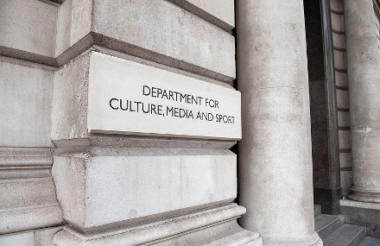Charity representative bodies, think tanks and grantmakers have told the government that the new civil society strategy should include an emphasis on grants, encouraging the sector to speak out and better more meaningful engagement.
The minister for civil society, Tracey Crouch, announced that she was working on a new strategy last year and the consultation opened earlier this year. The deadline to respond was 9am yesterday.
Here are some of the things that charities have asked for:
- Reform of the Lobbying Act
- Better consultation and engagement
- Improve commissioning across government to widen access to smaller charities
- Beef up the Social Value Act
- Use dormant assets to support community foundations
- Fund charities with grants
- Funding for the Charity Commission
NCVO: ‘Build on the sector’s strengths’
NCVO has urged the government to ensure that the new strategy builds on the sector’s strengths and to know when to get out of the way.
It called for “meaningful engagement” with the sector and said that the government should ensure that the legal and tax framework support the sector to be sustainable.
NCVO reiterated calls for the government to legislate to give employees three days off a year for volunteering leave and use the dormant assets windfall of around £2bn to support the development of community foundations. It also called for more grant funding and to make it easier to bid for contracts.
The umbrella body noted that the government’s definition of civil society excludes the public sector, which it said was “odd”.
“There is just as much blurring of the boundaries between civil society and the public sector – numerous statutory bodies have charitable status,” it said. It also highlighted the use of volunteers in public services and said: “The strategy could, therefore, arguably be wider.”
But it also warned the government that its broad definition of civil society means that “the main disadvantage of moving to a broader definition of civil society lies in creating uncertainty around the future scope and role of tax reliefs. A wider definition may encourage calls for the extension of reliefs”.
Acevo: ‘Universal ban of gagging clauses in government contracts'
In its submission, Acevo called for a universal ban of gagging clauses in government grants, which would enable a stronger environment for advocacy and campaigning.
It also reiterated calls for a fully funded Charity Commission, which it said would be “able to provide shepherding as well as enforcement services, especially in respect to governance and trusteeship”.
Acevo said that to build and maintain public trust in civil society, charities need to work together to better explain how they operate, and that government needs to be consistent in its narrative about the sector.
It also said that the strategy should set out how the Charity Commission and government will take steps to strengthen the independence of the regulator. And that is should address safeguarding concerns as a priority for strengthening public trust.
Acevo also said that an inclusive definition of civil society will enable more people to feel part of civil society, but said that it “doesn’t recognise the uniqueness of civil society organisations”.
The submission said that to enable more people to take action on issues that matter to them, Individuals, groups and more formal civil society organisations should be invited to contribute to the development of policy and services at the very start of development.
It called for a more strategic approach to funding civil society, which it said would mean greater impact.
It called for new investment models, and said that “civil society organisations should be supported to use a mixed model of income sources and there is need for more flexible forms of funding, such as grants, alongside newer forms of investment”.
Navca: ‘Rebalance the risks of commissioning’
Navca said that civil society should be about going beyond the basic needs of citizens, and doing what the state could not. It said it had instead become a “proxy for delivering the commitments of the state primarily because of the significant reduction in the state’s resources”.
It said that, at the same time, the relationship between the state and civil society is still fundamentally unbalanced, and that it is time to “completely redefine the relationship between citizens and the state, and even between citizens and the voluntary sector”.
It said that an investment in that understanding, underpinned by the development of a “new Compact that takes account of the wide range of contexts within both the state and the VCS, would be welcome”.
Navca said it is “noticeable that the strategy consultation themes don’t point towards any future Memorandum of Understanding between government, national infrastructure, local infrastructure and the wider voluntary sector,” and that this is felt to be a key gap, and addressing this is “central to developing more effective cross-sector collaboration”.
It said that the current models of commissioning and procurement are damaging the voluntary sector and the relationship between the sector and the state. It called for a genuine and tangible commitment to the principles of “co-design, co-delivery and true equality of risk when commissioning the voluntary sector”.
ACF: ‘Draw upon our expertise’
The Association for Charitable Foundations urged the government to “draw upon foundations' expertise, knowledge of, and longevity of support for civil society”.
It called on the government to “move away from contracts, and towards grants as the most enabling, flexible and efficient form of financial support”.
ACF also called on the government to make sure that funding intended for civil society organisations does not end up in the hands of for-profit companies.
“They [civil society organisations] are values and mission-led, not aiming to create private wealth or profit. It is essential that funding intended for the voluntary sector and civil society remains solely accessible by not-for-profit entities,” it said.
CFG: ‘Unlock £2bn by reforming tax system’
In its submission to the consultation, the Charity Finance Group renews a previous call for the government to unlock £2bn a year for charities by reforming the charity tax system by making changes to Gift Aid, irrecoverable VAT, business rates relief and insurance premium tax.
It says the current system “dates back to the Victorian period” and has never been fundamentally assessed to see whether it meets the needs of modern society.
“Our tax system provides ad-hoc reliefs to charities based on the idea that money which has been given for public benefit should not be taxed.
“Yet this has not been applied consistently and has created perverse situations where the government gives significant tax reliefs on the one hand and then takes it away with the other.
Read our news story on CFG's call for a shake up here.
NPC: ‘Tax breaks for funder transparency’
Charity sector think tank and consultancy NPC said government could do more to encourage charities to demonstrate impact.
It called for the Charity Commission to “utilise its own data more strategically” to enable greater understanding of local landscapes and where duplication may exist.
NPC called on the government to “act on the unintended consequences of current public service procurement processes” and said it would value a wider conversation about public sector procurement.
It also suggested that the government could offer tax breaks to funders who have backed the 360 Giving initiative and that “government should create a requirement for grant-making trusts to be more transparent and publish the reasoning behind their payout ratio”.
Charity Governance Code steering group: ‘Support governance’
The Charity Governance Code steering group, led by Rosie Chapman, has written to Tracey Crouch, minister for civil society, to emphasise the importance of good governance.
“Strengthening civil society must be done in tandem with strengthening civil society governance,” the letter said.
It suggested that the government’s strategy include commitments to support continued improvements in governments by “helping to educate the wider public, trustees and funders that using charitable funds to improve governance is an appropriate use of resources” and ensuring that government funding recognises “the need to cover the full costs of delivering services”.
Social Enterprise UK: ‘Don’t pigeon hole social enterprises within civil society’
Social Enterprise UK told the government that even though social businesses were “outperforming traditionally run businesses” they are “significantly undervalued” by the government.
It said that government support for the social enterprise movement has “fallen away” and that it was “concerned about the future” especially as the Office for Civil Society has “no dedicated function with the aim of growing social enterprise”.
SEUK said that “it is essential that the government does not pigeon hole social enterprises within civil society", and instead sees them as "partners to civil society but part of mainstream economy.”
It added that trading organisations have different needs to fundraising charities and called for a separate office.
DSC: ‘Listen to what charities have to say’
The Directory of Social Change called on the government to “make more use of grants” because the current commissioning climate “suffocates charities”. DSC called on the government to give the Charity Commission more funding, return the £425m that was borrowed from the Big Lottery Fund for the London Olympics and use dormant assets to endow community foundations.
It also urged government to listen to charities.
“Listen to what charities have to say, even if it’s uncomfortable. Don’t make it harder for people to speak up,” it said.
DSC suggested reform to the Lobbying Act, an end to ‘gagging’ clauses in public service delivery contracts and that government actually listen to consultation responses.
“Don’t ask people to spend time giving their opinion if the result has already been decided in advance or there’s no intention of changing policy as a result,” it said.
Lloyds Bank Foundation: ‘Government’s definition of civil society is too broad’
The Lloyds Bank Foundation has said it “opposes the broader interpretation of civil society outlined in the consultation because it makes the term unwieldly and meaningless”.
It said there was a role for different organisations but that the uniqueness of charities, voluntary/community groups and social enterprises needed to be taken into account.
The foundation also called on the government to champion small and local charities and reform local commissioning processes.
“Currently too much money is wasted on overly complex commissioning and procurement processes that take a one-size-fits-no-one approach to services, resulting in services imposed on communities that fail to tackle the root cause of issues and result in a revolving door that drives up demand for services,” it said.
It also called for the Social Value Act to be strengthened and enact Lord Hodgson’s recommendations to reform the Lobbying Act.
Institute of Fundraising: ‘Skilled and confident fundraisers essential’
The Institute of Fundraising said: “A strong, clear, and positive government strategy is fundamental to underpinning the future success and sustainability of civil society organisations as well as the vibrancy of social action and communities.”
It said a “skilled and confident” fundraising sector was a key part of this.
The IoF called for meaningful engagement, saying that “civil society organisations need to be not only heard, but listened to”.
It told government that fundraising is a key part of “citizenship and participation” and inspiring people to speak out.
“We would like to see the civil society strategy outline a roadmap of how it can work across government, and prompt action by each department to promote and grow fundraising and giving in all areas across civil society,” it said.
The IoF also called for more support for innovation, particularly around adopting new technology.
Children England: ‘Competitive tendering should be a last resort’
The umbrella body for children’s charities, Children England, said that rhetoric from government, regulators and commentators suggesting there are ‘too many charities’ or that charities should be “more business-like (or conversely less like businesses) undermines the public’s judgement of whether any given charity is worthy of support”.
It said that government funding across all departments and geographies should “promote rather than constrain the responsibility of charities to speak truth to power, and reward well-intentioned initiatives driven by mission rather than only quantifiable results”.
It said interpreting civil society as inclusive of all those outside of the public sector who share the mission of building a stronger society and improving lives, regardless of traditional sector boundaries, is problematic. It said it “casts the public sector as being ‘outside’ the scope of the strategy and in doing so, discounts their huge role in social action, values-driven practice and delivery of services and benefits to people and communities”.
Children England said that competitive tendering should be used as a last resort, not the default setting for all public spending for independent organisations.
It said that grant funding from government is essential for communities to thrive, putting people at the heart of everything.
Children England used the example of the recent collapse of Carillion, saying that it has shown that charities which are either forced to compete in the public services and outsourcing markets (or are sitting in its wider supply chains) are exposed to high financial risks.
It says that a lack of alternative and sustainable ways of funding puts financial pressure on small voluntary organisations in particular.
Reporting by Alice Sharman and Kirsty Weakley
|
Related articles













